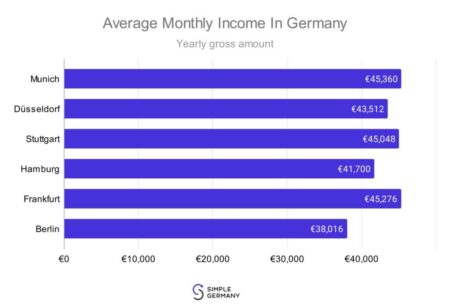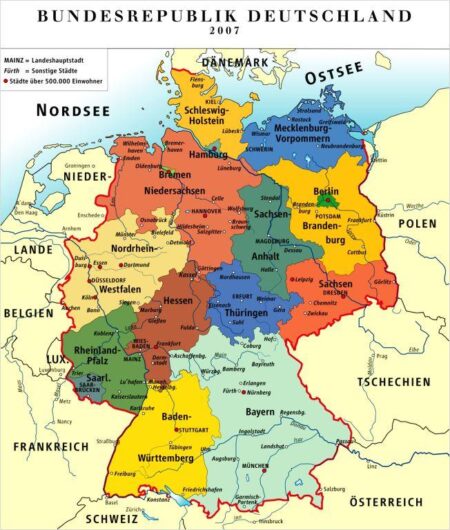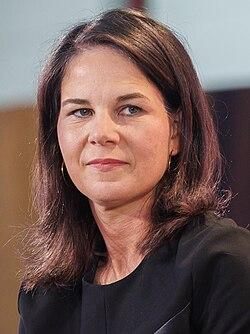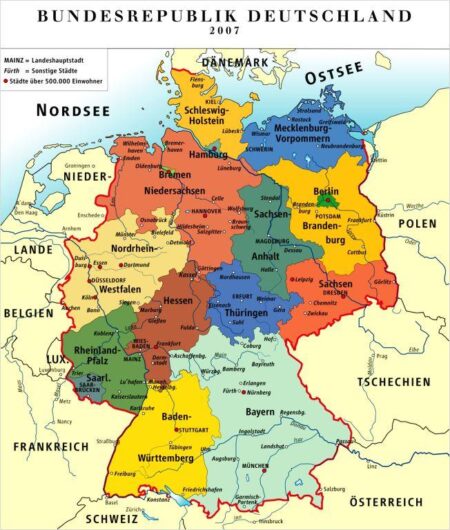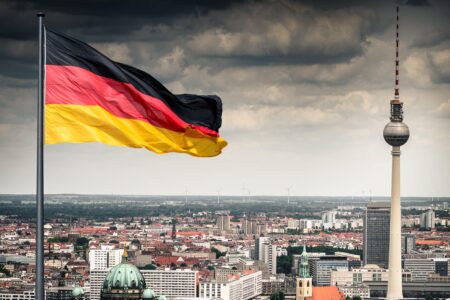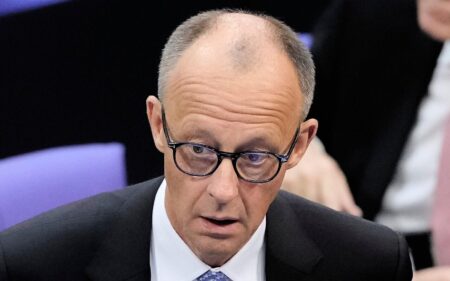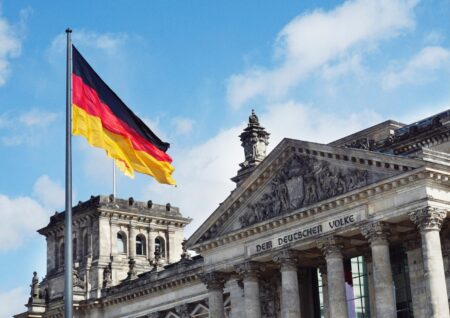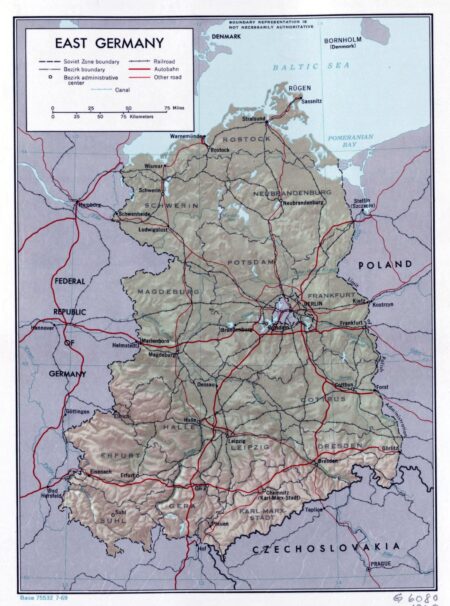Germany is gearing up to increase its minimum wage to €14.60 by 2027, a bold step aimed at significantly boosting workers’ incomes and fighting poverty directly. This steady rise underscores the government’s dedication to creating a stronger, fairer labor market for everyone
Browsing: Germany
In a bold and historic move, Germany is set to build Europe’s most powerful military force. This groundbreaking shift marks a decisive break from its post-Cold War defense stance, fueled by escalating regional security threats
German Foreign Minister has arrived in Kyiv to reinforce Germany’s steadfast support for Ukraine amid escalating tensions. This visit underscores Berlin’s resolute commitment to standing by Ukraine throughout its ongoing conflict with Russia, Reuters reports
Renewed militarization efforts have ignited fierce debate within Germany’s SPD, exposing deep rifts over defense policy. This conflict puts party unity at risk as calls for increased military spending grow stronger
Germany’s Social Democrats have officially bid farewell to Olaf Scholz as party leader, marking a pivotal moment just ahead of the upcoming elections. This transition sparks an exciting new chapter for the SPD as they navigate shifting political landscapes
England U21s soared to an electrifying victory over Germany in a nail-biting Euros final, with three standout stars dazzling the pitch and each earning a stellar 9/10 rating. The Young Lions showcased remarkable resilience and flair, sealing a historic triumph that sparked jubilant celebrations nationwide
Germany unleashed an electrifying performance to dominate Iran in Week 2 of the 2025 Volleyball Nations League, thrilling fans with their outstanding teamwork and skill. The intense battle in Tehran ended with Germany clinching a hard-fought and unforgettable victory
Germany is boldly stepping into the spotlight, expanding its global development role and seizing new opportunities as USAID scales back. With this strategic move, Berlin is dramatically increasing funding and broadening its influence across key regions around the world
Germany is dramatically ramping up its borrowing to unprecedented heights, powering bold economic recovery plans and pioneering green initiatives. This daring surge in debt marks a significant shift in the nation’s fiscal strategy, sparking vibrant debate across Europe
Rising living costs and stagnant wages are squeezing German households like never before, turning everyday expenses into a daunting challenge. For countless workers, simply covering the basics has become a daily battle, exposing the growing economic strain tightening its grip on the nation
BBVA has launched a fully digital bank in Germany, featuring an interest-bearing checking account with absolutely no fees. This innovative new service is set to captivate customers seeking convenient, affordable, and modern banking solutions in the German market
The U.S. Army recently took a bold step forward in combat technology by testing an innovative drone-mounted grenade drop system in Germany. These groundbreaking trials mark a thrilling leap toward integrating advanced unmanned systems right into the frontline of battle
German export sentiment has taken a hit amid looming tariff threats, the Ifo Institute revealed on Thursday. Escalating trade tensions are stirring uncertainty among exporters, casting a shadow over growth prospects
A rising tide of Turks is eagerly pursuing German citizenship, drawn by attractive economic opportunities, political stability, and deep-rooted family ties. DW explores the powerful forces driving this vibrant movement of integration and identity
Germany is considering bringing back mandatory military conscription if its current volunteer recruitment falls short. This bold step aims to bolster national defense amid growing security threats, the Financial Times reports
In a breathtaking late Thursday night twist, Chancellor Merz made a dramatic U-turn on Donald Trump, unveiling a bold new vision for Germany’s political strategy. This surprising move caught allies off guard and marked a pivotal moment in transatlantic relations
Belgium and Germany face off in a thrilling Quarter-Finals showdown at the FIBA Women’s EuroBasket 2025. With a coveted semi-final spot up for grabs, both teams are ready to ignite the court in an intense battle that fans simply can’t afford to miss!
Germany faces mounting pressure to boost its NATO defense spending to 5% of GDP. This ambitious move aims to strengthen the alliance’s readiness, yet it raises concerns about possible economic challenges amid an uncertain global environment, CNBC reports
Italy and Germany have hit the pause button on vital EU green deal legislation aimed at sparking revolutionary biotechnology innovation, igniting economic and regulatory concerns. This move risks derailing the EU’s bold climate and sustainability goals
East German cities are launching exciting offers of free stays to attract new residents and boldly confront the sharp population decline. This innovative approach aims to revitalize local economies and keep community spirit alive, even as more people leave rural areas behind

